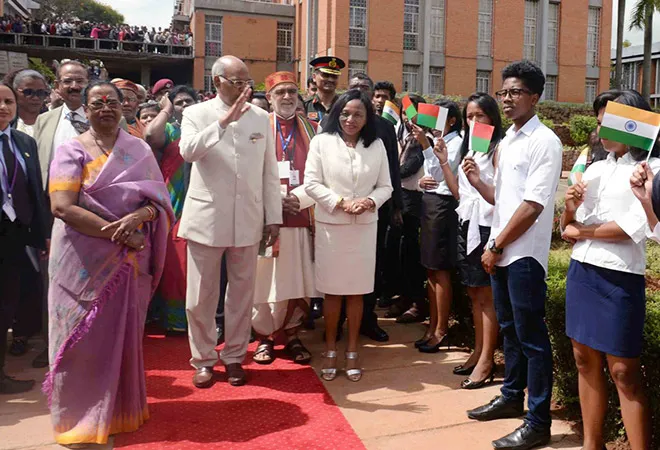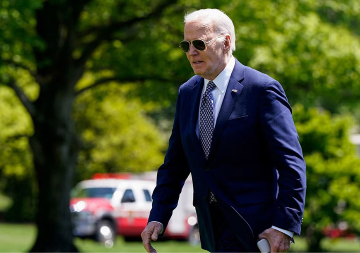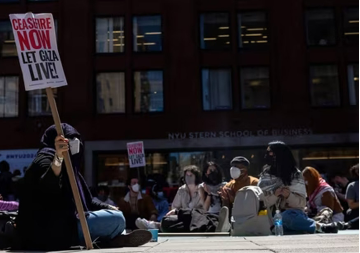
Last week, President Ram Nath Kovind visited Mauritius and Madagascar, two key island nations in the Indian Ocean region. During this visit, India has announced a new $100 million line of credit for defence procurement by Mauritius, in addition to a multipurpose offshore patrol vessel (MPOPV) to build its capacities. India is also involved in the development Mauritius’ Agalega island with dual-use logistical facilities. A defence cooperation agreement with Madagascar has also been signed. This visit comes days after India and France, with their eyes firmly on the Indian Ocean, signed the “reciprocal logistics support” agreement as part of which warships of both the nations would have access to each other’s naval bases.
Much like the Pacific Rim which shaped the global economic trajectory for the two decades, the Indian Ocean has the potential to become the most important source of new global growth over the next 20 years. With the Indian Ocean channels carrying two-thirds of the world’s oil shipments, a third of the bulk cargo and half of all container traffic, the region’s strategic significance remains well established. China’s rise has added another dimension where traditional power equations are now in flux. For India, which sits astride the Indian Ocean as its pre-eminent power, this is clearly an important phase in the evolution of its thinking on the region.
The Modi government has been giving Indian Ocean due attention with former foreign secretary S. Jaishankar arguing in favour of “reviving the Indian Ocean as a geopolitical concept.” Prime Minister Modi has also talked up the importance of the “Indian Ocean region” and has visited not only Seychelles, Mauritius and Sri Lanka but also several East African nations along the Indian Ocean littoral. Inviting Seychelles and Mauritius to join the existing maritime security cooperation arrangement among India, the Maldives and Sri Lanka in 2015, Modi had underlined that New Delhi seeks “a future for Indian Ocean that lives up to the name of SAGAR — Security and Growth for All in the Region.” He has clearly outlined a set of goals which included seeking “a climate of trust and transparency; respect for international maritime rules and norms by all countries; sensitivity to each other’s interests; peaceful resolution of maritime security issues; and increase in maritime cooperation.”
Interestingly, India’s Indian Ocean outreach is happening at a time when New Delhi is also trying to make a case about its centrality in the wider Indo-Pacific, a concept which situates India at the very heart of the changing geopolitical transitions in the region. India has been keen to underscore that it is not merely an Indian Ocean and South Asian power but one which has the capacity and increasingly the intent to shape the wider strategic realities in the region. India’s self-defined strategic interests now straddle the wider Indo-Pacific, stretching from established framework in the Indian Ocean, to its expanding interests in the South China Sea, and indeed into the South/West Pacific. And this understanding of Indian strategic reach is now being widely accepted. The US has welcomed this growing footprint but other major powers have also responded positively. The re-emergence of Quad, involving the US, Japan, Australia and India is also a reflection of this growing consensus.
Yet as the crisis in the Maldives has indicated India’s position in the Indian Ocean is being challenged in ways that are both new and unprecedented. Merely stating the intent is no longer enough. China is challenging India in the Indian Ocean region in ways few would have anticipated even a few years back. And India’s credibility to emerge as a net security provider in the region is on the line. While India’s commitment to shape the future of the Indian Ocean region is a welcome shift in New Delhi’s traditionally diffident posturing, India’s ability to deliver on the ground is being scrutinized even more carefully now, both by the resident and extra regional powers. It is for New Delhi to live up to the expectations it has generated.
An earlier version of this article was carried in Hindustan Times
The views expressed above belong to the author(s). ORF research and analyses now available on Telegram! Click here to access our curated content — blogs, longforms and interviews.




 PREV
PREV


